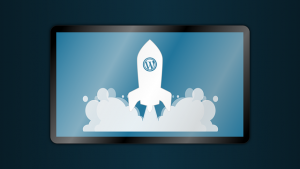Optimize image size
A common cause of long loading times is large images. Reducing the image size will always have a significant impact on the loading time of the web. Ideally, images should be edited and optimized before being published. Programs like Photoshop, with the “Save for Web” dialog box or online tools like TinyPNG, allow you to make these kinds of adjustments without any problem. Likewise, some WordPress plugins facilitate the automatic optimization of image files, such as WP Smush. Once enabled, it optimizes and compresses the images within the WordPress database.
Plugins for image optimization
- WP Smush
- EWWW Image Optimizer
- BJ Lazy Load (Does a lazy loading of images and ensures that the web loads quickly)
Minimize CSS and JavaScript resources
The next item in the list is optimizing CSS and JavaScript codes. It is often helpful to reduce extra spaces, line breaks and indents to speed up WordPress. It is also possible to combine several files to reduce the number of HTTP requests, with programs like CSS Minifier.

Tools for optimization:
- CSS Minifier
- CSS Compressor
- JavaScript Minifier
Shorten the caching load time
With each visit to a website, WordPress retrieves content from its database to fully display the site, which generates longer loading times. Caching plugins create a static version of the web, thereby improving performance. Cachify, for example, defines specific parameters such as validity or the location of cached memory (that is, the database or the hard drive). Other tools like WP Super Cache or W3 Total Cache offer even more storage options and individual caching.
WordPress cache plugins:
- W3 Total Cache
- WP Super Cache
- Cachify
Clean database
The speed with which a database responds to your queries is directly related to its size. Databases tend to grow gradually over time because many web pages generally generate automatic backups. This means that unwanted data such as drafts, comments, and even deleted articles may be stored in the database. This impairs the performance of any web page. Therefore, regularly cleaning databases is highly recommended, either manually or with the help of plugins.
Plugins for cleaning databases:
- Optimize Database after Deleting Revisions
- WP-Optimize
- WP Clean Up
Reduce plugins
A great advantage that WordPress has is a large number of plugins available for optimization. However, some of them are known to harm the performance of a website. Every web administrator should periodically review which plugins are unnecessary or no longer used; There are also alternatives to reduce the size of some extensions. The Performance Profiler Plugin, mentioned above, is perfect for identifying those aspects that interfere with WordPress performance.
Optimize WordPress
Even the most straightforward actions can have a significant influence on the performance of a web page. Accelerating WordPress and improving your load times is important to have satisfied customers and decrease the bounce rate, but it is also essential to achieve better positioning in Google. In this way, it is evident that optimizing WordPress pays off. There are hundreds of WordPress plugins to determine and improve the performance and loading speed of a website; These can also be used by users with no experience or advanced programming knowledge. Implementing these and other tools will go a long way in ensuring that a website runs smoothly and offers a great user experience.
